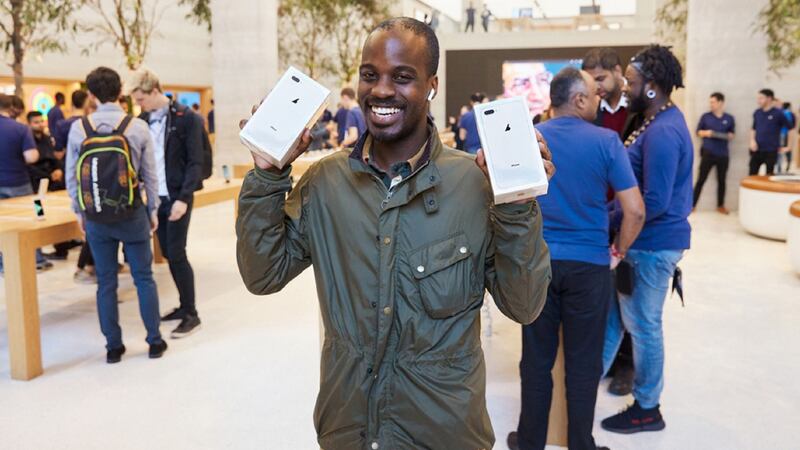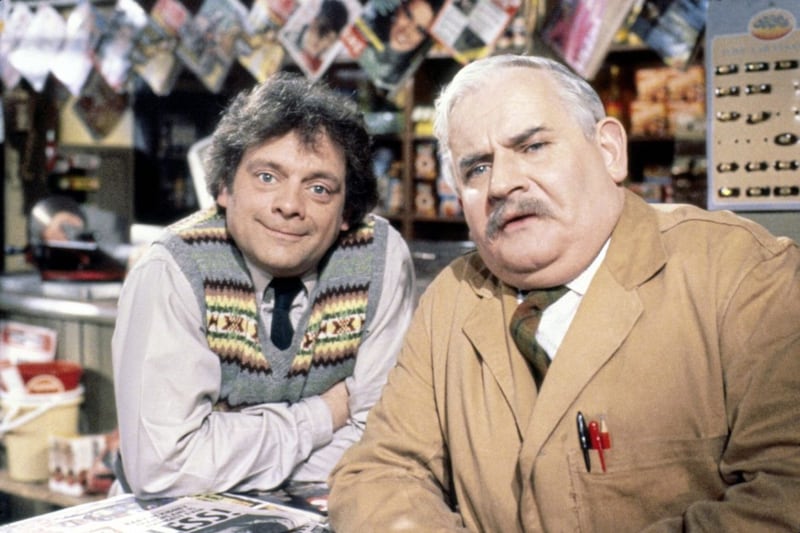There’s a mighty battle going on in the retail trade. The average household, statistics say, contains 300,000 items.
We, the public, are exposed to 5,000 advertisements a day, all of them urging ownership of whatever product they’re trying to sell, on the seductive principle of “treat yourself – you’re worth it”. It’s difficult to resist their blandishments even if you already possess what they’re offering.
Their subliminal message is: “Ah, but this is the updated, redesigned, state-of-the-art NEW model, infinitely superior to our previous one.
Stay abreast of the zeitgeist!” And we fall for it. Witness the conditioned response of throngs of customers queuing to buy the newly-released iPhone X, with last year’s model in their pockets.
Shopping’s now classed as a legitimate leisure activity, like gardening or jogging – though hardly beneficial to our financial health.
Social scientists however, suggest we’re reaching saturation point and the young are spending more on experiences rather than things. Even the founder of IKEA, who’s made multi-millions by catering to our acquisitiveness admits that “people have reached peak stuff”.
Are we on the cusp of change?
Personally, I don’t see much evidence of it. On the first of this month (55 days before Christmas,) the Hallowe’en paraphernalia came down and the galloping reindeer went up in our local shopping mall. I met a woman struggling across the already full car-park with two black bin-bags of Christmas toys at 9:40am.
The madness had begun.
The psychology of shopping fascinates me. I’m 99 per cent convinced of the existence of the ‘shopping gene’, inherited by at least three generations of the women in my family.
Like my mother before and my daughter after me, I rarely came home from town without some purchase, however modest.
It’s the lure of the new.
It’s ‘want’ versus ‘need’, the buzz of buying, the pleasure of possession – that evaporates within hours. Impulse buying, often repeated, is called a habit and it’s addictive.
Transient trends and fickle fashion keep us spending, keep us changing the look of our homes and ourselves.
I admit there are things I don’t remember buying, near-duplicates of what I already have. This was handy, since the Loving Spouse could rarely distinguish one green garment from another.
Mind you he once went out for the Saturday morning papers and came home with a 30-foot, wooden-hulled sailing boat – but that’s another story.
Preaching the gospel of minimalism rather than maximalism, two young Americans are currently on a Billy Graham-style crusade to convert the western world to the idea that less is more.
Both high-earning professionals, they’ve abandoned their successful careers to live simply and persuade us pathological shoppers to resist the temptation of ‘must buy’ consumption that has us in thrall.
In tee-shirts and jeans, their philosophy is straightforward. “Buy less, but more meaningfully; distinguish between need and want; buy only for a purpose – or joy; resist the fleeting urge to possess; don’t mistake ephemeral moments of pleasure for lasting happiness; downsize, de-clutter; spend on experiences rather than things.”
Ironically, they’re making a fortune through inspirational talks, books and podcasts.
Unlike other de-clutterers who’ve also reaped rich rewards from instructing us how to free ourselves from the burden of ‘stuff’, they advocate a gentler clearance whereby you discard one item on the first day, two on the second, etcetera ad infinitum, thus assuaging any sense of loss.
Things like books you’ll never read again, ornaments that are a bit ‘meh’, keepsakes no longer meaningful, surplus kitchenware and furniture; clothes and accessories not worn for three months, no plan to wear within the next three and things you’re keeping in case they’ll come in useful.
By that reckoning, I’d still be de-cluttering till 2022.
Naturally, there’s a principle behind all this. They recommend you write a list of ten things that have added value to your life.
Out of curiosity I gave it a go.
This is what I wrote: ``Love, friendship, the good opinion of others, job satisfaction, financial stability, books, music, art, theatre, travel/new experiences.'' How odd. Apart from books, there’s NO STUFF. Hmmm….








